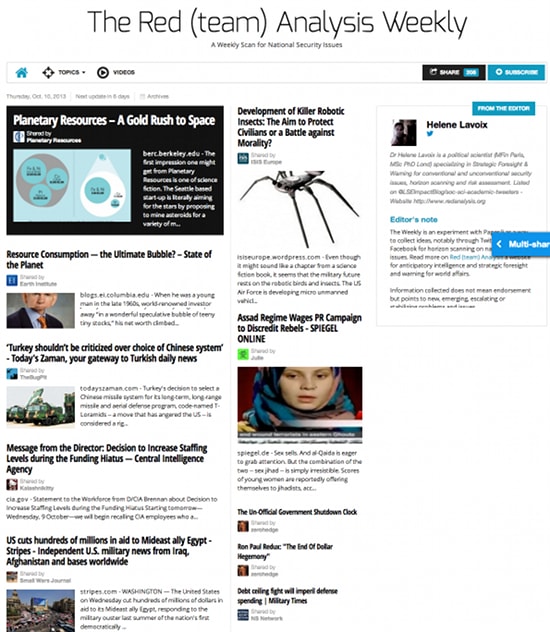This week among the major clusters of signals that emerge, we have those about Turkey, its geopolitics and growing Islamism, then the chronicles of an environmental catastrophe in the making, including resources depletion, with the rising importance of a “Gold Rush to Space” as one counterweight. In this framework, if we look at another – unsurprising – cluster, the U.S. government shutdown (and risk of default – but they would not dare, would they?), and turn to the very interesting “Un-Official Government Shutdown Clock”, we shall see that the NASA counts 97% of furloughed employees, the EPA 93% and the DOE 69%. Thus, to direct challenges to national security the shutdown represents, amply emphasized and documented, we may see another one being outlined, a challenge in terms of strategic choices and vision. The cluster on drones and “killer robot insects” is an indication of the changes taking place in warfare, while the more ancient but always efficient psychological operations continue unabated, as with Syria. Meanwhile, the agony of Greece and Greeks exemplifies a world that has changed, with its growing wealth and skyrocketing inequality and their so often forgotten, slowly emerging political consequences, at national and international level (including the progressive loss of legitimacy of international institutions, see the articles on the IMF and Greece and the U.N. and Haiti).
Click on the image below to read on Paper.Li


